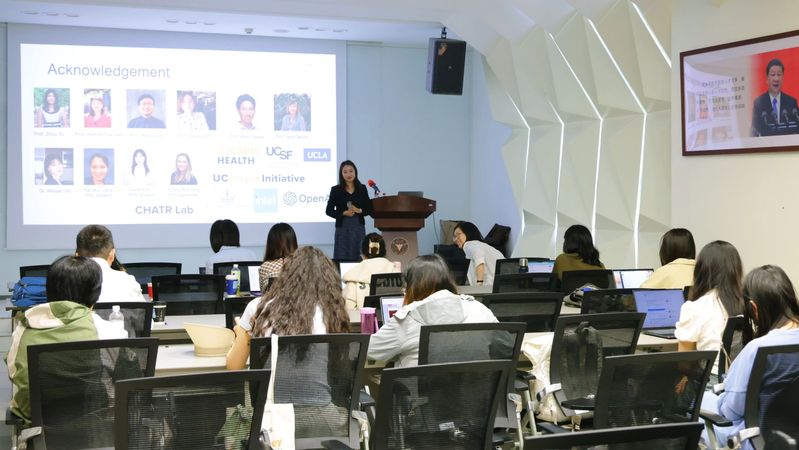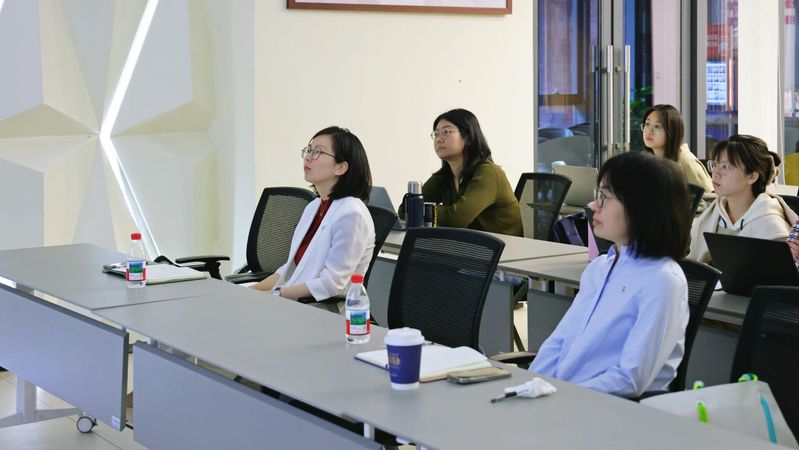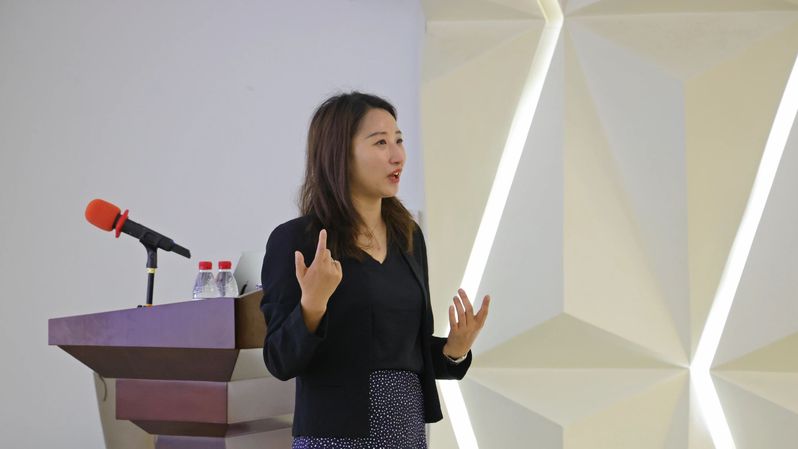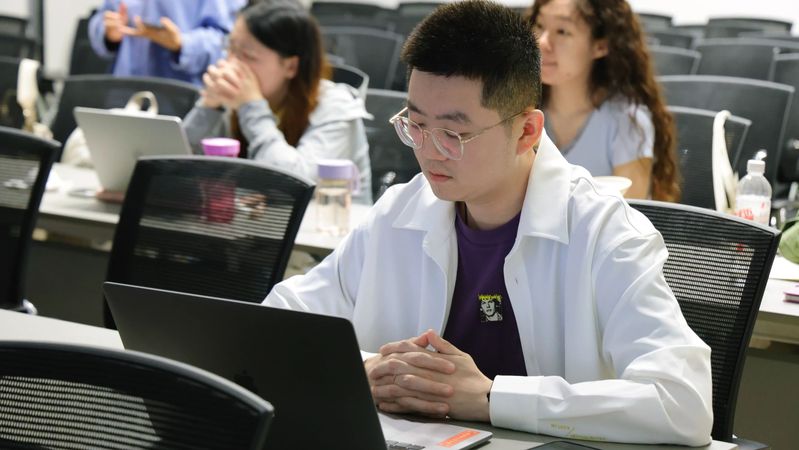With the rapid development of artificial intelligence technology and the widespread adoption of mobile internet, the field of health communication is undergoing profound transformation. Generative AI represented by ChatGPT and large language models (LLMs) are reshaping the creation, distribution, and reception of health information through personalized messaging and multimodal interactions.

On April 21, Professor Zhang Jingwen from the University of California delivered a lecture titled How AI is Transforming Health Communication. Combining cutting-edge research with practical cases, she systematically explored the theoretical foundations of human-computer interaction and proposed forward-looking recommendations for AI applications in medicine and public health.
At the outset, Professor Zhang reviewed the evolution of AI technology and highlighted its extensive applications in healthcare communication, including medical imaging analysis, disease diagnosis, and doctor-patient interactions. She provided a detailed introduction to the advantages and effectiveness of large language models, emphasizing their importance in delivering personalized medical advice and improving physician-patient communication.

Professor Zhang pointed out that the two core values of generative AI lie in establishing social relationships and enabling persuasive dialogues. For instance, the fitness coaching robot ExerBot can analyze users' exercise habits through conversation and dynamically adjust recommendations, while the cardiovascular health assistant HeartBot generates personalized dietary suggestions based on medical histories. Research data further confirms AI's potential: the August 2023 KFF Health Misinformation Tracking Survey on AI and Health Information revealed that one-third of the public uses AI tools for health information multiple times weekly, with particularly high reliance among younger demographics. Additionally, a 2023 JAMA Internal Medicine study found that on public social platforms, AI responses to patient inquiries scored higher than physicians in both quality and empathy ratings.

Human-machine interaction is inherently social, Professor Zhang emphasized. This characteristic enables AI to simulate human communication logic. However, the promise of AI in health communication comes with complex challenges. Expectations regarding AI's accuracy, trustworthiness, and ethical standards vary significantly among individuals and are more pronounced across different countries and cultural contexts. Ensuring information accuracy and safety requires continuous monitoring and verification, yet this process faces substantial difficulties. Furthermore, AI content moderation mechanisms have vulnerabilities—since models can be persuaded by humans to produce desired outputs, their objectivity cannot be absolutely guaranteed.

During the Q&A session, a student raised questions about how human behavior shapes AI behavioral patterns. Professor Zhang explained that AI models develop feedback mechanisms through training; while they may not directly provide certain information, they can be guided to output relevant content through persuasion. She stressed that building and maintaining trust between users and AI systems hinges on establishing human-centered communication and organizational structures.

Looking ahead, Professor Zhang believes AI will become more deeply integrated into healthcare and public health systems. To navigate this trend, an open-minded approach to change is essential, with focus on three key areas: advancing theoretical innovation to refine human-computer interaction frameworks for evolving technological environments; achieving equitable access to bridge the digital divide and ensure AI benefits all populations; and strengthening regulatory frameworks to establish robust ethical standards and institutional safeguards for AI applications in health communication.
AI is transforming the landscape of health communication in unprecedented ways—not only expanding information dissemination channels and enhancing precision and personalization but also offering new approaches to addressing health information inequality. While challenges remain, continued technological progress and regulatory refinement will unlock AI's greater potential in this field, creating more value for global health initiatives.

